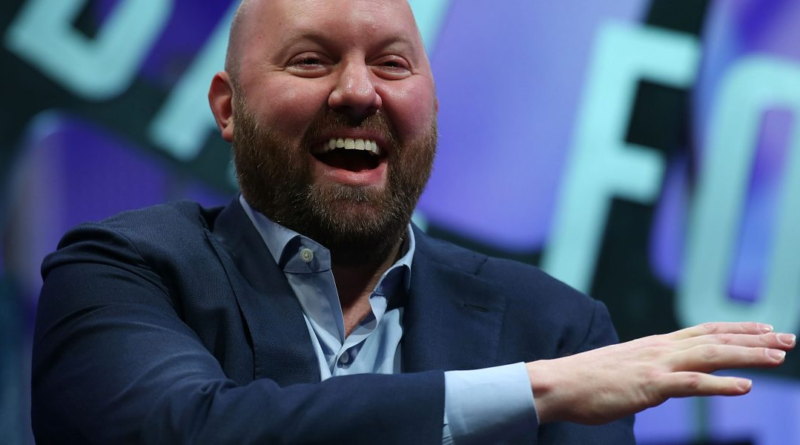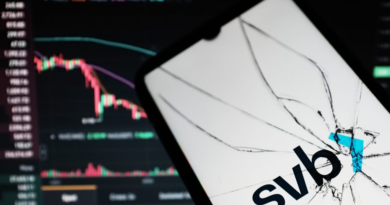Marc Andreessen’s ‘Techno-Optimist Manifesto’ says the myth of Frankenstein, Oppenheimer, and the Terminator ‘haunts our nightmares.’ Here’s what he is (probably) getting at
“We are being lied to,” is the very first sentence in Marc Andreessen’s new “Techno-Optimist Manifesto,” where the billionaire venture capitalist lays out his latest thoughts on the benefits of technology and free markets. “We are told that technology takes our jobs, reduces our wages, increases inequality, threatens our health, ruins the environment, degrades our society, corrupts our children, impairs our humanity, threatens our future, and is ever on the verge of ruining everything.” But that’s just not so, he argues. Rather, we must get past our fear of “the myth of Prometheus”—and yes, Frankenstein, Oppenheimer, and the Terminator all apply.
The legendary venture capitalist’s 5,000-word manifesto discusses the impact that he sees technology having on the human species and touches on everything from utopias to the meaning of life. He argues that society is afraid of the “lies” it’s been told about new and ground-shaking technologies, with artificial intelligence just the latest of these. He strongly suggests that society is too concerned with an ancient Greek cautionary tale and not enough with Friedrich Nietzsche’s theory of modernity and the “Übermensch,” or superman.
“The myth of Prometheus—in various updated forms like Frankenstein, Oppenheimer, and Terminator—haunts our nightmares,” Andreessen wrote in his manifesto, published on his Substack and on the website for his venture capital firm, Andreessen Horowitz, on Monday. But dream big instead, the billionaire says, adding he is “here to bring the good news.”
The cautionary tale of Prometheus
Prometheus, a clever and cunning immortal figure from Greek myth, was known for stealing fire from the gods and gifting it to humans. For this action, he was punished by Zeus, being chained to a rock where an eagle would eat his regenerating liver for eternity. The myth is a warning: Some technologies were never meant for people to have. Prometheus thought he would make humans’ lives better by giving them fire, but doing so also enabled them to forge weapons and wage wars.
Andreessen applied the metaphor to J. Robert Oppenheimer, “father of the atomic bomb,” later called the “American Prometheus” in a Pulitzer-winning biography. By unleashing the overwhelming destruction of the atom bomb, Oppenheimer pretty clearly stole a kind of fire from the heavens and gifted it to humans.
Of course, Mary Shelley’s Frankenstein was written at the dawn of the age of technological advancement, while James Cameron’s Terminator is a relic of the blockbuster 1980s, but both tell similar tales of technology turning against its human master.
The dawn of artificial intelligence is the latest technological advancement for which the myth has been cited, but Andreessen rejects these fears entirely, writing, “Technology is the glory of human ambition and achievement, the spearhead of progress, and the realization of our potential.”
“It is time, once again, to raise the technology flag,” he added. “It is time to be Techno-Optimists.”
The potential of Nietzsche’s superman
Andreessen has previously discussed his dreams of a laborless paradise where artificial general intelligence (AGI)—AI that can do anything humans can—would be applied to the economy and its benefits would be distributed across the population. If made a reality, he estimates that U.S. economic growth could soar to 100% annually (compared with 2.1% now), resulting in the cost of goods collapsing and consumers left with a “cornucopia” of spending power.
Indeed, the generative AI market is expected to explode to over $1.3 trillion in value over the next 10 years from $40 billion in 2022, according to a June report by Bloomberg Intelligence. Rather than fearing a robot uprising akin to a modern-day Frankenstein’s monster, Andreessen suggests another masterwork from that period for his audience: the 19th-century German philosopher Friedrich Nietzsche’s idea of the superman, or “Übermensch.”
Nietzsche was grappling with the impact of the Second Industrial Revolution when he wrote, “Man is a rope, tied between beast and superman—a rope over an abyss. What is great in man is that he is a bridge and not an end.” To massively simplify, Nietzsche’s concept of the superman was that technology would allow humans to determine their own fate as the machine would take the place that God had enjoyed before. This belief was undeniably powerful, but the tragedies of the 20th century also illuminate its dangers—something Andreessen partially alludes to with his repeated denunciations of communism.
To be sure, Andreessen is far from alone in proclaiming AI as the coming of the “fourth industrial revolution” or the coming of a new superhuman. His counterpart, VC billionaire Masayoshi Son, addressed SoftBank investors earlier this year and told them ChatGPT had made him consider, “What is mankind?” He ultimately argued that humanity plus AI would create a new kind of “superhuman.”
Andreessen, who has written a separate manifesto titled, “Why AI Will Save the World,” has previously discussed how humans and AI will soon have a “symbiotic relationship,” and he is clearly in the anti-Frankenstein camp.
“We believe that we are, have been, and will always be the masters of technology, not mastered by technology,” he wrote. “We are not victims, we are conquerors. We believe in nature, but we also believe in overcoming nature. We are not primitives, cowering in fear of the lightning bolt. We are the apex predator; the lightning works for us.”



